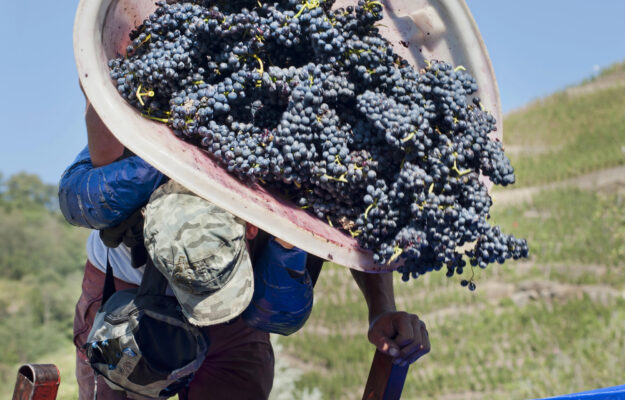From economic and contribution support to the fight against illegal work with increased controls on contracts in agriculture to the inclusion of specific rules for unfair trade practices. These are the three pillars underpinning the Agriculture Decree Law, which has become a reality (Law 101/2024) and, in total, has put 500 million euros on the plate to support supply chains in difficulty. A text that, on the whole, had pleased the majority of the representations of the agricultural world, from Confagricoltura to Coldiretti, from Cia-Agricoltori to Fedagripesca-Confcooperative, but, however, not without critics, especially from the cooperative front. There is no shortage, however, of positive news for companies, at a particularly delicate time for the sector: from payment extensions to investment concessions via a 50% reduction in the penalty in the case of unfair trade practices, provided that the appropriate activities are put in place to eliminate the harmful consequences of the offence. And then the significant squeeze on illegal working, with stricter controls, but important news also arrives for the world of viticulture, with the prices of goods that are supplied, and therefore grapes and wine, having to take into account production costs, a mandatory element to be included in contracts. The highlights of the text, which was converted into Law 101/2024, were explained to WineNews by attorney Marco Giuri of Studio Giuri in Florence, one of the top reference points on wine legislation in Italy.
Starting with economic and contributory support, for companies comes a “breath of fresh air” through the extension of time that materializes with the suspension for 12 months of the payment of mortgage installments (principal part) or other installment financing, possibly also perfected through the issuance of agricultural promissory notes and maturing in 2024. The suspension may be requested by agricultural, fishing and aquaculture enterprises that have suffered a reduction in turnover of at least 20%, or a reduction in production, minimum 30%, over the previous year. Beneficiaries also include agricultural cooperatives that add up to a reduction in quantities contributed, or a reduction in production, of at least 20% over the previous year. There is, however, one condition that puts a “stumbling block”: interested enterprises must not have been classified with impaired debt exposures as of July 14, 2024. The application can be submitted with a self-certification stating the conditions above. A hand outstretched for agricultural enterprises also arrives with investment subsidies that have been made until November 15, 2024 for the purchase of new machinery, plant and various equipment intended for already existing production facilities or that are being implanted in the territory but also for the purchase of land and the acquisition, construction, expansion of real estate instrumental to the investments but that comply with the conditions laid down in the European legislation on state aid in the agricultural, forestry and rural areas and fisheries. The value of land and buildings cannot exceed 50% of the total value of the subsidized investment. Investment projects of less than 50,000 euros are not eligible for aid.
Among the issues on the agenda is the heat emergency that is putting a strain on workers but also on products in the Italian countryside: there is room in the Dl Agricoltura for useful measures to cope with the exceptional weather conditions that result in the suspension or reduction of work activity (heat waves) until December 31, 2024, with the recognition to permanent agricultural workers (even in the case of a reduction in work activity equal to half of the daily contractual hours), of a treatment in lieu of pay.
Chapter illegal working and exploitation of labor, an ugly “scourge” for agriculture with episodes that have ended up, unfortunately, at the center of the Italian news. The actions put in place, as WineNews had already explored in depth, are many starting with the tool of the “information system” set up at the Ministry of Labor and Social Policies, a digital platform aimed at sharing, by state/regional administrations, all that certain information on labor relations and workers deemed useful and essential to combat undeclared work in general.
The intent of the legislature is to foster the qualitative evolution of agricultural labor by increasing the ability to analyze, monitor and supervise labor exploitation phenomena. In particular, the content of the information included in the Information System, concerns data on labor relations of farms and data from the Unified Information System of Labor Policies; the registry of farms; the calendar of crops; residence permits issued for labor reasons; wage, contribution, insurance data; results of inspections in farms; data on accidents and occupational diseases in farms; data on active agricultural enterprises and those dedicated to transportation and housing for workers in the agricultural sector. But the fight against the phenomenon of illegal working in agriculture will also take place through the special “Data Bank of Contracts in Agriculture”, focused on strengthening controls on labor and social legislation in the agricultural sector. The data contained in the tool can be consulted by inspection personnel from the National Labor Inspectorate, Carabinieri Labor Protection Command, Guardia di Finanza and Inail. Enterprises, in individual or associated form, that intend to participate in contracts in which the commissioning enterprise is an agricultural enterprise are registered in the database. The Ministry of Labor and the Ministry of Agriculture, having consulted with Inps and the National Labor Inspectorate, Inail and labor organizations, determine the requirements for contractor registration-qualification, taking into account the contractor’s business structure, organization of necessary means, management at its own risk of the contracted service, documentation for verification of their possession, other information already available to other public administrations, and technical rules for acquiring, updating and consulting documentation. A key aspect concerns the requirements of the insurance surety policy guaranteeing social security contributions and insurance premiums due in relation to the period of performance of the contract contract, as well as the wages due to the company’s own employees employed in the contract. Upon the outcome of the verification of the above-listed elements, Inps issues a certificate of compliance to the applicant enterprise.
In addition, non-agricultural enterprises (individual and associated), if engaged in the harvesting of agricultural products, which intend to enter into contracts must provide the principal with the insurance surety policy and, in case of failure to do so, an administrative penalty of 5,000 to 15,0000 euros is provided for both the principal and the contractor. The penalty also prevents, for one year, from the notification of the offense, the registration or permanence in the “Quality Agricultural Labor Network”.
Then there is an article dedicated to “measures for the support of wine producers”, which aims at bureaucratic simplification with dematerialized registers of wine products linked to the Wine Register through the digitization of fulfillments, a measure that is particularly awaited. Implementation modalities will be determined within 60 days after the entry into force of the future law converting this Decree, so as of today they are not described. Regarding, on the other hand, countering unfair practices, there was the amendment to Legislative Decree. 198/2021 (text regulating trade relations and contrasting unfair trade practices), with the inclusion of the definitions of “Average production cost” of agricultural and food products determined by the Institute of Agricultural Market Services (Ismea) on the basis of the methodology developed by the same and communicated to the Ministry of Agriculture and the “Cost of production” related to the use of raw materials, factors, both fixed and variable, and services necessary for the production process carried out with the techniques prevailing in the reference area. In the wake of said specific definitions, it is specified that “the prices of goods supplied shall take into account the cost of production”.
In addition, Article 10 of Legislative Decree 198/2021 is amended, in which it is stipulated that the contractor, who has been challenged with an unfair business practice, is allowed “within the peremptory term of 30 days from the notification of the order of injunction, to proceed to the payment of the penalty in the reduced amount of 50%, if he proves that he has taken all appropriate activities to avoid the harmful consequences of the offense”.
Giving some examples of “remedial” activities, taking the case of “oral contract-written contract” as a model (the grape-wine purchase contract must be compulsorily made in writing), it is considered a suitable activity to elide the harmful consequences of the tort to draft the contract concluded orally in writing. A second example may involve any cases of pricing below the cost of production, and thus imposing excessively burdensome contract terms on the seller, including selling agricultural and food products at prices below the cost of production. In this case, it is an appropriate activity to eliminate the harmful consequences of the wrongdoing to modify the excessively burdensome contractual conditions by formally offering the supplier payment of a price above the production costs incurred by the latter and in any case payment of the full amount agreed upon in the transfer contract.
Copyright © 2000/2026
Contatti: info@winenews.it
Seguici anche su Twitter: @WineNewsIt
Seguici anche su Facebook: @winenewsit
Questo articolo è tratto dall'archivio di WineNews - Tutti i diritti riservati - Copyright © 2000/2026







































































































































































































